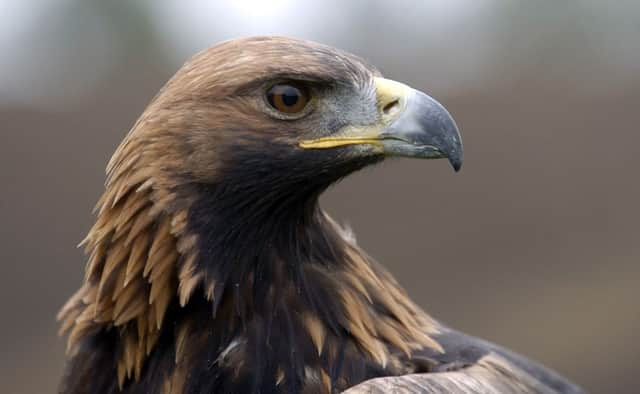Nearly 800 birds of prey killed in past 20 years


The latest figures, compiled by conservation charity RSPB Scotland, show 779 birds are known to have died in wildlife crimes between 1994 and 2014.
In total, 468 birds of prey were poisoned, 173 were shot and 76 were caught in banned traps. There were also seven attempted shootings.
Advertisement
Hide AdAdvertisement
Hide AdThese include 104 red kites, 37 golden eagles, 30 hen harriers and 10 white-tailed eagles.
A number of domestic pets also died from poison directed at birds, with 14 cats and 14 dogs among 171 non-raptor species killed.
In a further 134 incidents no victim was recovered but clear attempts had been made to target raptors.
But conservationists say the true scale of the problem of illegal persecution of raptors is likely to be much worse as many crimes go undiscovered.
The report shows a signficant proportion of cases took place in areas associated with game-bird shooting, particularly grouse moors.
This has sparked renewed calls for a tightening of controls on sporting estates.
“We recognise that many landowners and their staff have helped with positive conservation efforts for birds of prey, particularly with reintroduction programmes for white-tailed eagles and red kites, and that the majority operate legitimate shooting businesses,” said RSPB Scotland director Stuart Housden.
“But there are still far too many who do not act responsibly, and there will be no improvement in the conservation status of raptors until all land management is carried out wholly within the law.”
Advertisement
Hide AdAdvertisement
Hide AdBut land managers have accused the charity of unfairly targeting sport shooting.
“Our condemnation of wildlife crime is unequivocal,” said Tim Baynes, director of the Scottish Moorland Group.
“We would suggest that RSPB would achieve more by working more closely with people on the ground who are responsible for moorland management on a daily basis.”
A Scottish Gamekeepers Association (SGA) spokesman said: “The SGA continues to act against wildlife crime and advocates only legal solutions to solving species conflict.”
Efforts to combat wildlife crime have been stepped up in recent years, with the Scottish Government introducing a raft of measures – including tougher penalties, the introduction of vicarious liability provisions and amnesties on disposal of banned poisons.